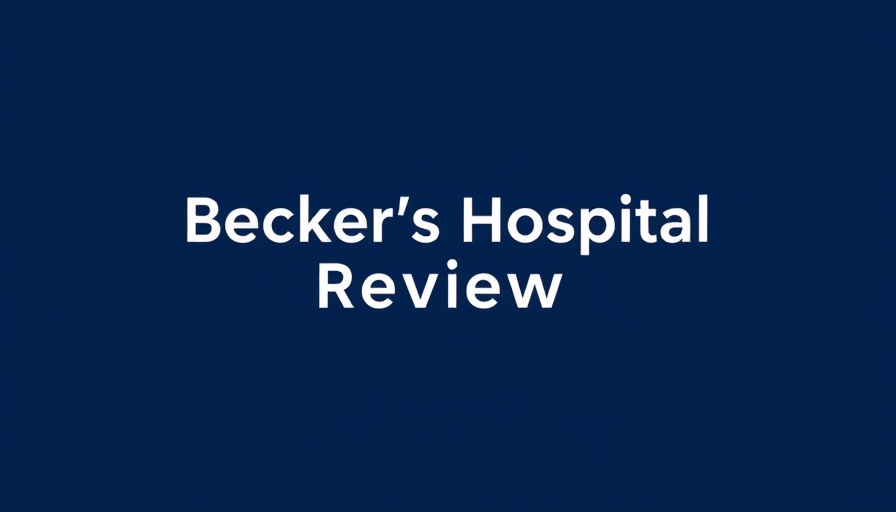
Trinity Health's Leap into the Future with Epic EHR
In an exciting development for healthcare in Minot, North Dakota, Trinity Health has embarked on an 18-month project to replace its current electronic health record (EHR) system with Epic. Scheduled to go live on November 1, 2026, this transition is set to enhance patient care and operational efficiency significantly. John M. Kutch, Trinity Health's president and CEO, expressed that this investment not only modernizes the technology within the health system but also reinforces their commitment to the health and well-being of the community they serve.
Why Transitioning to Epic EHR is a Game-Changer
Switching to a more robust EHR system like Epic can have wide-reaching implications for healthcare providers and patients alike. Epic systems are known for their comprehensive capabilities that promote interoperability—a crucial factor in today's integrated healthcare environment. With improved data accessibility, healthcare professionals can spend less time on administrative tasks and more on patient care.
The Impact on Healthcare Workflow and Patient Engagement
This strategic move is about more than just technology—it’s about how healthcare providers can better serve their patients. Epic’s advanced functionalities allow healthcare workers to engage patients more effectively and streamline workflows through features like patient engagement tools. Additionally, the integration of remote therapeutic monitoring (RTM) programs within the Epic ecosystem can transform patient care, especially for those managing chronic conditions.
Boosting Efficiency with Healthcare Automation
Healthcare automation is another critical area where Epic shines. With the integration of voice AI agents and missed call automation, staff productivity can be maximized, freeing up valuable time for healthcare workers. When administrative burdens are minimized, it leads to enhanced healthcare staff retention, as teams can focus on delivering quality care instead of getting bogged down in paperwork.
The Financial Aspect: How This Affects Practice Revenue
Trinity Health's investment in Epic also presents opportunities for financial optimization. Automated billing systems can help recover lost revenue from insurance underpayments and streamline Medicare reimbursement processes. From practices to independent pharmacies, adopting EHRs like Epic can yield significant clinic cost savings and enhance pharmacy profitability.
Enhancing Employee Health Benefits Through Technology
Moreover, as healthcare becomes increasingly complex, providing employees with the right tools can enhance their benefits and overall job satisfaction. With pre-tax benefit plans now encompassing telehealth revenue and digital front desks, providers can utilize Epic to modernize employee health benefits effectively. As a result, a healthier workforce contributes to better patient outcomes.
What Lies Ahead: Future Predictions for EHR Systems
The transition to Epic is just the beginning. As the healthcare industry continues to advance, the focus will undoubtedly shift towards more niche solutions like pharmacy-focused innovations and telehealth integrations that improve comprehensive patient care. Organizations that proactively embrace these changes will likely thrive while those that resist may fall behind.
Conclusion: Taking Proactive Steps in Healthcare
The strategic decision by Trinity Health to switch to Epic demonstrates a forward-thinking approach in a rapidly evolving healthcare landscape. With a commitment to better technology and enhanced patient care, it sets a precedent for other healthcare systems to follow. For healthcare professionals looking to enhance their practice and remain competitive, now is the time to explore how digitization and automation can lead to better outcomes for both patients and providers.
As we witness Trinity Health's journey over the next 18 months, let us reflect on how such transitions impact not just one facility, but the community as a whole. It’s a reminder that in healthcare, progress is always possible, and the next great innovation could be just around the corner.
 Add Row
Add Row  Add
Add 




Write A Comment